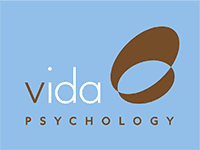15 Mar Am I in an Abusive Relationship?
An abusive relationship is one where someone behaves in a way that is controlling or intimidating towards their partner. This behaviour is intentional and deliberate and it can be physical, emotional, verbal, financial or sexual in nature. Abusive relationships exist across all genders, socio-economic groups and ethnic backgrounds.
The following are some examples of abusive behaviour:
- Your partner makes fun of you and ridicules you in front of others.
- Your partner puts you down or calls you names.
- Your partner refuses to listen to what you have to say.
- Your partner yells at you.
- Your partner prevents you from working or choosing your own career.
- Your partner withholds money or demands explanations of every penny spent.
- Your partner demands sexual acts you are uncomfortable with.
- Your partner constantly blames you for things that go wrong.
- Your partner threatens to harm himself or herself, you or your loved ones including pets if you leave him or her.
- Your partner checks constantly your whereabouts and activities.
- Your partner hurts you physically.
- Being constantly worried about not wanting to ever upset your partner and constantly walking on eggshells.
- Finding yourself having to please your partner all the time.
- Being concerned about your partner’s temper, jealousy, or possessiveness.
- Not being able to say what you think and feel especially if it contradicts your partner for fear of his or her reaction.
- Finding yourself being uncertain if you should be feeling upset about something.
- Not seeing family and or friends as often to avoid having to explain yourself to your partner to avoid an argument.
Anyone can find themselves in an abusive relationship. However we know there are some individuals who are more vulnerable to being abused. Following are some examples:
- Children who found themselves having to parent their parents.
- Children whose boundaries growing up were ignored. This unfortunately results in not being able to set clear boundaries as adults as there is a lack of awareness of own needs and wants.
- Children who were yelled at and then spoilt with gifts, apologies or loving behaviours. They grow up believing this is what happens in a loving relationship.
- Children who were blamed, ignored, put down or abused.
Because children with abusive parents cannot leave them, they try to fix difficulties with their parents by making excuses for their behaviour and blaming themselves. As adults, they continue to blame themselves for difficulties in their relationship, which results in constantly doubting themselves. This then results in lacking confidence, assertion and low self-esteem. In time, this can result in feeling anxious and depressed. Abusive behaviour is never acceptable or justifiable. A healthy relationship encourages mutual respect and understanding of boundaries and acceptance of shared blame. Differences are resolved in a respectful manner without becoming abusing. Abuse goes on for long periods as it often happens behind closed doors and people are reluctant to talk to others about their abuse for various reasons including being confused, ashamed, judged or misunderstood. Abusers are great at controlling and manipulating and often manage to convince the people they abuse they are to blame.
If you believe you are in an abusive relationship is important to know you can seek professional help.
Psychologists at Vida Psychology have extensive experience in helping individuals who are in abusive relationships. We provide a non-judgemental and supportive environment promoting an opportunity to talk and make sense of what is happening in your relationship to then explore the various options available to you.


Sorry, the comment form is closed at this time.